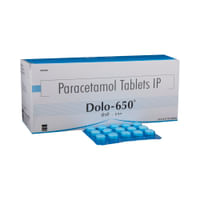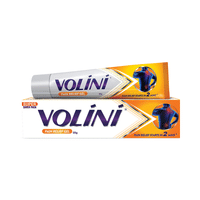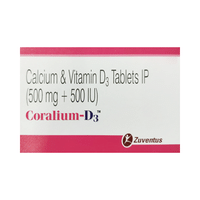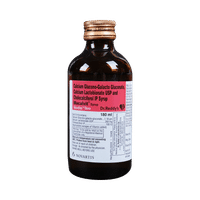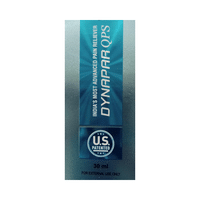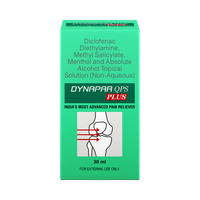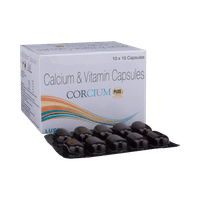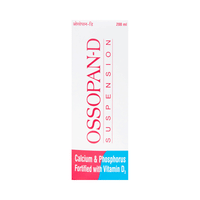Aclopride Gel
Rs.102for 1 tube(s) (30 gm Gel each)
food interaction for Aclopride
alcohol interaction for Aclopride
pregnancy interaction for Aclopride
lactation interaction for Aclopride
medicine interaction for Aclopride
food
alcohol
pregnancy
lactation
medicine
No interaction found/established
No interaction found/established
Information regarding the use of Aclopride Gel during pregnancy is not available. Please consult your doctor.
CONSULT YOUR DOCTOR
Information regarding the use of Aclopride Gel during breastfeeding is not available. Please consult your doctor.
CONSULT YOUR DOCTOR
No interaction found/established
SALT INFORMATION FOR Aclopride
Aceclofenac(1.50% w/w)
Uses
Aceclofenac is used for pain relief. It relieves pain and inflammation in conditions like rheumatoid arthritis, ankylosing spondylitis, and osteoarthritis.
How it works
Aceclofenac is a non-steroidal anti-inflammatory drugs (NSAID). It works by blocking the release of certain chemical messengers that cause pain and inflammation (redness and swelling).
Common side effects
Nausea, Diarrhea, Abdominal pain, Constipation, Dyspepsia, Increased liver enzymes, Gastritis, Mouth ulcer, Increased blood urea, Increased creatinine level in blood, Rash, Anaphylactic reaction, Anemia (low number of red blood cells), Cardiac failure, Gastrointestinal ulcer, Breathlessness
Linseed Oil(3.0% w/w)
Uses
Linseed Oil is used for pain relief.
How it works
Not known.
Common side effects
Limited data available
Methyl Salicylate(10% w/w)
Uses
Methyl Salicylate is used in muscle pain and rheumatic pain.
How it works
Methyl Salicylate is a non-steroidal anti-inflammatory drugs (NSAID) which works by blocking the release of certain chemical messengers that cause pain and inflammation (redness and swelling).
Common side effects
Application site irritation
Menthol(5% w/w)
Uses
Menthol is used in the treatment of throat irritation.
How it works
Menthol works by producing a mild anesthetic action causing numbness and a cooling sensation in the area of application.
Common side effects
Capsaicin(0.025% w/w)
Uses
Capsaicin is used in the treatment of pain relief.
How it works
Capsaicin is a pain reliever. Capsaicin works by desensitizing the nerve endings which reduces pain. Rubefacient increases the blood flow of the affected area to give a warm and soothing feeling.
Common side effects
Breathlessness, Application site reactions (burning, irritation, itching and redness), Skin irritation, Transient burning, Headache, Aggravated osteoarthritis, Sneezing, Eye irritation, Skin exfoliation, Body odor, Nasal irritation, Throat irritation, Wheezing, Aggravation of asthma, Application site pain
SUBSTITUTES FOR Aclopride
No substitutes foundExpert advice FOR Aclopride
- You have been prescribed Aceclofenac to relieve pain and inflammation.
- Take it with food or milk to prevent upset stomach.
- Take it as per the dose and duration prescribed by your doctor. Long term use may lead to serious complications such as stomach bleeding and kidney problems.
- It may cause dizziness, drowsiness or visual disturbances. Use caution while driving or doing anything that requires concentration.
- Avoid consuming alcohol while taking Aceclofenac as it can cause excessive drowsiness and increase your risk of stomach problems.
- Inform your doctor if you have a history of heart disease or stroke.
- Your doctor may regularly monitor your kidney function, liver function and levels of blood components, if you are taking this medicine for long-term treatment.
Frequently asked questions FOR Aclopride
Aceclofenac
Q. Is Aceclofenac a good painkiller?
Aceclofenac is effective in relieving pain and inflammation. It is used to provide relief from various sorts of pain such as sprains, strains and other injuries. It is also helpful in various types of arthritis, gout, pain and inflammation following surgery.
Q. Is Aceclofenac safe?
Aceclofenac is safe if used in the dose and duration advised by your doctor. Take it exactly as directed and do not skip any dose. Follow your doctor's instructions carefully and let your doctor know if any of the side effects bother you.
Q. Does Aceclofenac get you high?
No, Aceclofenac does not get you high. It does not have an abuse potential (drug-seeking behavior) and does not cause physical or psychological dependence. However, if you do not feel well, consult your doctor.
Linseed Oil
Methyl Salicylate
Q. Is methyl salicylate the same as aspirin or menthol?
Methyl salicylate is not the same as aspirin or menthol. Methyl salicylate belongs to the same class of medication like aspirin i.e. analgesics or painkiller
Q. How does Methyl Salicylate work?
Methyl Salicylate relieves pain by inhibiting formation of pain causing chemicals in the body
Q. Does it work as a blood thinner or kill bacteria?
It is not a blood thinner and does not kill bacteria













